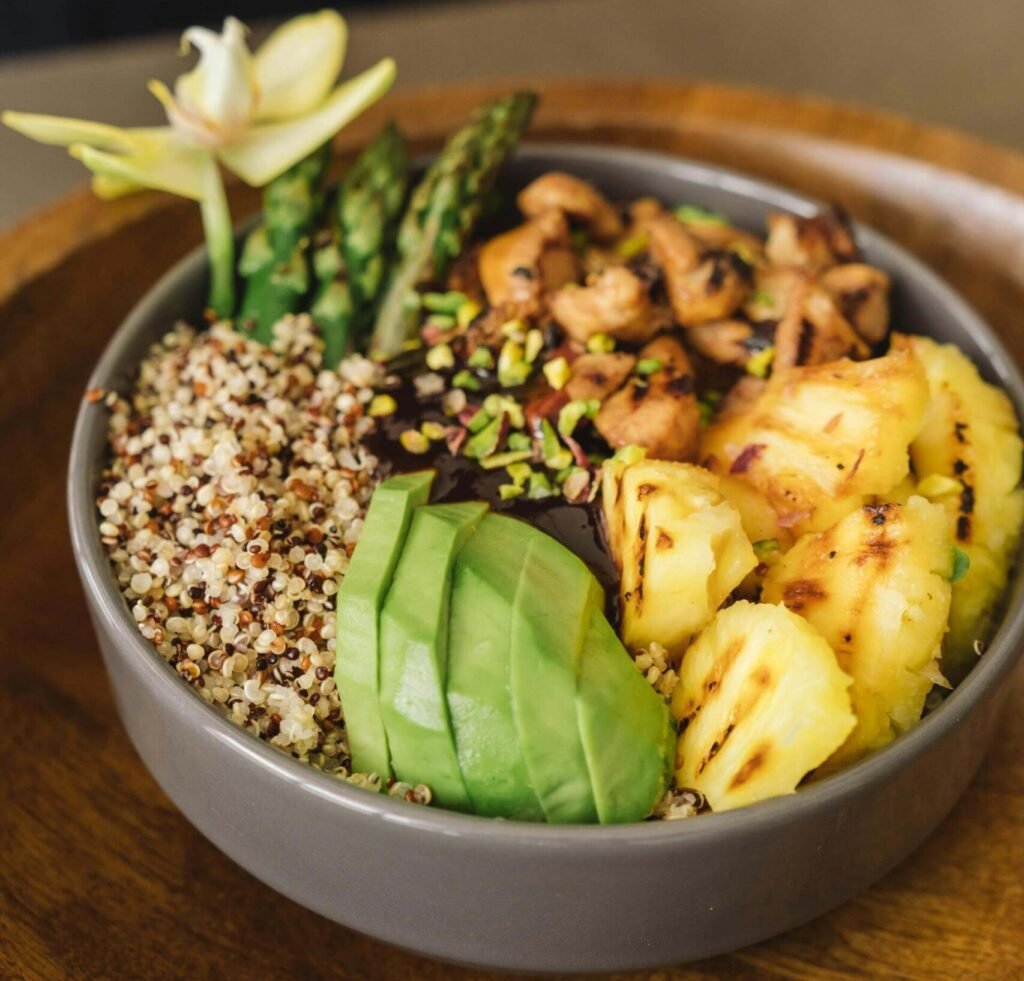
Intermittent Fasting for Weight Loss: Ultimate Benefits.
Introduction: The Weight Loss Struggle
In the quest for weight loss, many people experience frustration, confusion, and a sense of defeat. If you’ve tried multiple diets with little success, you’re not alone. The weight loss industry is saturated with quick fixes and unrealistic promises, leaving many feeling hopeless. But what if there’s a simpler approach that can help? Enter intermittent fasting (IF)—a method that has gained immense popularity in recent years. This article will explore what intermittent fasting is, how it can aid weight loss, and whether it’s the right approach for you.
What is Intermittent Fasting?
Intermittent fasting is not a diet in the traditional sense; it’s an eating pattern that cycles between periods of fasting and eating. Rather than focusing on what to eat, IF emphasizes when to eat.
Types of Intermittent Fasting
- The 16/8 Method: This is one of the most popular approaches, where you fast for 16 hours a day and restrict your eating to an 8-hour window. For instance, if you finish dinner at 8 PM, you wouldn’t eat again until noon the next day.
- The 5:2 Diet: In this method, you eat normally for five days of the week while limiting calorie intake to about 500-600 calories on the other two days. These two days don’t have to be consecutive.
- Eat-Stop-Eat: This involves fasting for a full 24 hours once or twice a week. For example, you would eat dinner at 7 PM one day and not eat again until 7 PM the next day.
The Science Behind Intermittent Fasting
When you fast, several things happen in your body that promote weight loss and improve health:
- Hormonal Changes: Fasting causes your insulin levels to drop significantly, making it easier for your body to burn fat. Human growth hormone (HGH) levels may increase, which aids in fat loss and muscle gain.
- Cellular Repair: During fasting, cells initiate autophagy, a process that removes damaged cells and regenerates new ones, contributing to improved health and longevity.
- Gene Expression: Fasting influences genes related to longevity and disease protection, which can enhance your overall health.
Intermittent Fasting for Weight Loss
Numerous studies suggest that intermittent fasting can be an effective tool for weight loss. Research indicates that people following IF can lose 3-8% of their body weight over three to 24 weeks. This is comparable to traditional calorie restriction methods.
Real Success Stories
Meet Sarah, a busy mother of two who struggled with her weight for years. After trying various diets without lasting results, she decided to give intermittent fasting a try. By following the 16/8 method, she found that she could enjoy her favorite foods within her eating window while still losing weight. “It felt liberating to stop counting every calorie,” Sarah shares. Her story reflects the emotional relief many find with IF—freedom from restrictive dieting.
Getting Started with Intermittent Fasting
If you’re considering intermittent fasting, here are some practical tips to ease your transition:
- Choose Your Method: Select a fasting schedule that aligns with your lifestyle. If you’re a morning person, the 16/8 method might work well. If you prefer fewer restrictions on food intake, consider the 5:2 diet.
- Stay Hydrated: Water is your best friend during fasting periods. It keeps you hydrated and can help curb hunger.
- Mindful Eating: Focus on whole, nutrient-dense foods during your eating windows. Include plenty of vegetables, lean proteins, healthy fats, and whole grains to fuel your body.

Common Challenges and How to Overcome Them
While intermittent fasting can be beneficial, it’s essential to acknowledge that it can come with challenges:
- Hunger and Cravings: Initially, you may feel hungry during fasting periods. This is normal! Stay busy, drink herbal tea, or chew sugar-free gum to manage cravings.
- Social Situations: Fasting can feel restrictive at social events. Communicate with friends and family about your fasting schedule, or plan your meals around gatherings.
- Mindset Shifts: Rather than viewing fasting as a punishment, embrace it as a lifestyle choice. This mental shift can make a significant difference in your experience.
Potential Downsides of Intermittent Fasting
Intermittent fasting is not suitable for everyone. Here are a few considerations:
- Health Considerations: Those with certain medical conditions, such as diabetes, or individuals who are pregnant or have a history of eating disorders, should consult a healthcare professional before starting IF.
- Possible Side Effects: It’s common to experience fatigue, irritability, or difficulty concentrating when beginning intermittent fasting. These symptoms often improve as your body adjusts to the new eating pattern.

Conclusion: Your Journey with Intermittent Fasting
As you stand at the crossroads of your weight loss journey, remember that intermittent fasting isn’t just about when you eat; it’s about embracing a lifestyle that prioritizes your health and well-being. Picture yourself breaking free from the cycle of restrictive dieting, feeling empowered to enjoy the foods you love within a structured framework.
Intermittent fasting offers a chance to not only shed pounds but also cultivate a healthier relationship with food. You’re not alone in this journey; many have walked this path and discovered newfound freedom and confidence. Whether you choose the 16/8 method, the 5:2 diet, or any other approach, commit to being kind to yourself. Celebrate small victories along the way and remember that it’s not just about the scale—it’s about how you feel, both physically and emotionally.
We encourage you to give intermittent fasting a try, staying open to the possibilities it may bring. Your experience may vary, but every step you take towards a healthier lifestyle counts.
Summary
Intermittent fasting presents a powerful tool for beginners looking to lose weight and improve their health. By focusing on when to eat rather than restricting what you eat, you can foster a positive mindset and enjoy the foods you love. With various methods like the 16/8 approach, the 5:2 diet, and Eat-Stop-Eat, there’s a style that fits your lifestyle.
While there may be challenges, such as hunger and social situations, many find the rewards far outweigh the difficulties. The key is to stay hydrated, choose nutrient-dense foods, and adopt a positive outlook. As you navigate this journey, remember that you are part of a supportive community, and sharing your experiences can inspire others.
Join us in the comments! Share your thoughts, questions, or success stories about intermittent fasting. Together, we can encourage each other to achieve our health goals and celebrate our progress!
FREQUENTLY ASKED QUESTIONS(FAQs)
1. What is intermittent fasting, and how does it work?
Intermittent fasting (IF) is an eating pattern that alternates between periods of eating and fasting. Instead of focusing on what to eat, IF emphasizes when to eat. During fasting periods, your body undergoes hormonal changes that can help with weight loss and improve your overall health. It’s like giving your body a break, allowing it to reset and recharge!
2. Will I feel hungry during fasting?
It’s completely normal to feel hungry at first! Many beginners experience hunger pangs when they start intermittent fasting. Think of it as a sign that your body is adjusting. Remember, you’re not alone—many people have been in your shoes and have found ways to manage hunger, like drinking water or herbal tea. It gets easier with time, and soon you might even feel empowered by your ability to control cravings!
3. Can I still enjoy my favorite foods?
Absolutely! One of the beautiful aspects of intermittent fasting is that it doesn’t require you to eliminate foods you love. Instead, it encourages you to enjoy them within your eating window. Imagine savoring your favorite meal without the guilt—IF allows you that freedom. Your journey is about balance and making choices that nourish your body and soul!
4. How do I stay motivated on my intermittent fasting journey?
Motivation can ebb and flow, and that’s okay! Surround yourself with supportive friends or join an online community where you can share experiences and encourage one another. Setting small, achievable goals can also boost your motivation. Celebrate every victory, no matter how small—it all adds up to a healthier you!
5. What if I have a social event during my fasting window?
Social events can be tricky, but with a little planning, you can enjoy them while sticking to your fasting schedule. Communicate with your friends and family about your goals; you might be surprised by their support! Plus, you can always adjust your eating window for that day. Remember, it’s about finding a balance that works for you, so you don’t have to miss out on meaningful moments.
6. Is intermittent fasting safe for everyone?
While intermittent fasting is safe for many people, it may not be suitable for everyone. If you have medical conditions or concerns, it’s essential to consult with a healthcare professional before starting. Your health is paramount, and it’s important to listen to your body.
7. How do I know if intermittent fasting is right for me?
The best way to find out is to try it! Start with a method that resonates with your lifestyle, like the 16/8 method, and see how your body responds. Remember, it’s a journey of self-discovery. Pay attention to how you feel physically and emotionally. If it feels right, embrace it!
8. How long does it take to see results with intermittent fasting?
Every body is different, and results can vary based on individual factors like metabolism, lifestyle, and dietary choices. Many people start to notice changes within a few weeks, but it’s essential to be patient and stay committed. Celebrate the small wins along the way—whether it’s feeling more energized or noticing your clothes fit better. Remember, this journey is about progress, not perfection!
9. Can I exercise while fasting?
Yes, you can absolutely exercise while intermittent fasting! Many people find that they have more energy during their fasting windows once they adjust. However, listen to your body. If you’re feeling weak or dizzy, consider adjusting your workout intensity or timing. Exercise can be a fantastic way to enhance your results and boost your mood, so find what works best for you!
10. What should I eat during my eating window?
Focus on whole, nutrient-dense foods that fuel your body and keep you satisfied. Think vibrant fruits and vegetables, lean proteins, healthy fats, and whole grains. Picture filling your plate with colorful foods that nourish your body and delight your senses. The goal is to enjoy what you eat while providing your body with the nutrition it craves!
11. Can intermittent fasting help with emotional eating?
Many people find that intermittent fasting can help break the cycle of emotional eating by creating a structured approach to meals. It encourages mindfulness around food and helps individuals recognize true hunger cues versus emotional triggers. If you’re struggling with emotional eating, remember that seeking support from friends, family, or professionals can be a game-changer.
12. What if I miss a fasting window or break my fast early?
It happens to the best of us! Life is unpredictable, and one missed window doesn’t define your journey. Instead of feeling discouraged, view it as an opportunity to learn about your body’s needs. Pick yourself up and continue on your path—self-compassion is crucial! Every step you take toward your goals counts, no matter how small.
13. Are there any foods I should avoid during my eating window?
While there are no strict rules, it’s best to limit highly processed foods, sugary snacks, and excessive amounts of refined carbohydrates. These foods can lead to energy crashes and cravings, making it harder to stay on track. Instead, focus on nourishing your body with foods that make you feel good and support your weight loss goals.
14. How can I deal with social pressure while fasting?
Social situations can be challenging, but remember that your health journey is personal. Practice assertiveness by explaining your fasting choice to friends and family. Most will be supportive and understanding. It’s okay to set boundaries—trust that those who care about you will respect your choices. Use these moments to advocate for your health and inspire others!
15. Is intermittent fasting just a trend?
While intermittent fasting has gained popularity recently, it’s based on principles that have existed for centuries. Many cultures incorporate fasting into their practices for health and spiritual reasons. The key is finding what works best for you—intermittent fasting may be a trend for some, but for many, it’s a sustainable lifestyle choice that promotes balance and wellness.
16. How do I know if I’m doing intermittent fasting correctly?
You’re doing great if you’re following a method that feels sustainable and beneficial for your body! Signs that it’s working for you include increased energy, improved mood, and even weight loss. However, listen to your body. If you’re experiencing negative effects like extreme fatigue or irritability, it may be time to reassess your approach. Remember, your well-being is the top priority!
17. Can I drink coffee or tea while fasting?
Yes! Drinking black coffee or herbal tea during your fasting period is not only allowed but can also be beneficial. These beverages are low in calories and can help suppress hunger. Picture yourself sipping on a warm cup of coffee, enjoying the aroma while your body benefits from its natural metabolism-boosting properties. Just remember to avoid adding sugar or cream!
18. Will intermittent fasting affect my metabolism?
Intermittent fasting may actually help boost your metabolism in the long run. During fasting periods, your body becomes more efficient at burning fat for energy, which can enhance metabolic health. Many people find that their energy levels improve, making them feel more active and engaged throughout the day. Imagine feeling lighter and more energized—it’s a wonderful side effect!
19. Is intermittent fasting suitable for women?
Absolutely! Many women successfully use intermittent fasting as a weight loss and health strategy. However, women may experience hormonal fluctuations that could affect their fasting experience. It’s crucial to listen to your body and consult with a healthcare provider if you have concerns. Remember, your health journey is uniquely yours, and finding what works for you is key!
20. What if I have a medical condition or take medication?
If you have a medical condition or are taking medication, it’s essential to consult with a healthcare professional before starting intermittent fasting. Your health and safety should always come first. They can provide personalized guidance and help you determine whether intermittent fasting is suitable for your situation. Never hesitate to ask for support—you deserve it!
21. How can I break my fast without overeating?
When it’s time to break your fast, start with a small meal or snack that includes protein and healthy fats. Think of it as a gentle reintroduction to food rather than a feast. Taking it slow helps you gauge your hunger and prevents overwhelming your system. Picture yourself enjoying a nourishing meal that satisfies without leaving you stuffed!
22. Can intermittent fasting help with inflammation or chronic conditions?
Some studies suggest that intermittent fasting may reduce inflammation and improve markers associated with certain chronic conditions, such as heart disease and diabetes. However, results can vary. Embrace this journey as a step toward better health—focus on how you feel rather than just the numbers on the scale!
23. How do I stay hydrated while fasting?
Staying hydrated is crucial! Drink plenty of water throughout the day, and don’t hesitate to enjoy herbal teas or flavored water. Hydration can help manage hunger and keep your energy levels up. Visualize sipping refreshing water, feeling revitalized and focused as you continue your fasting journey!




